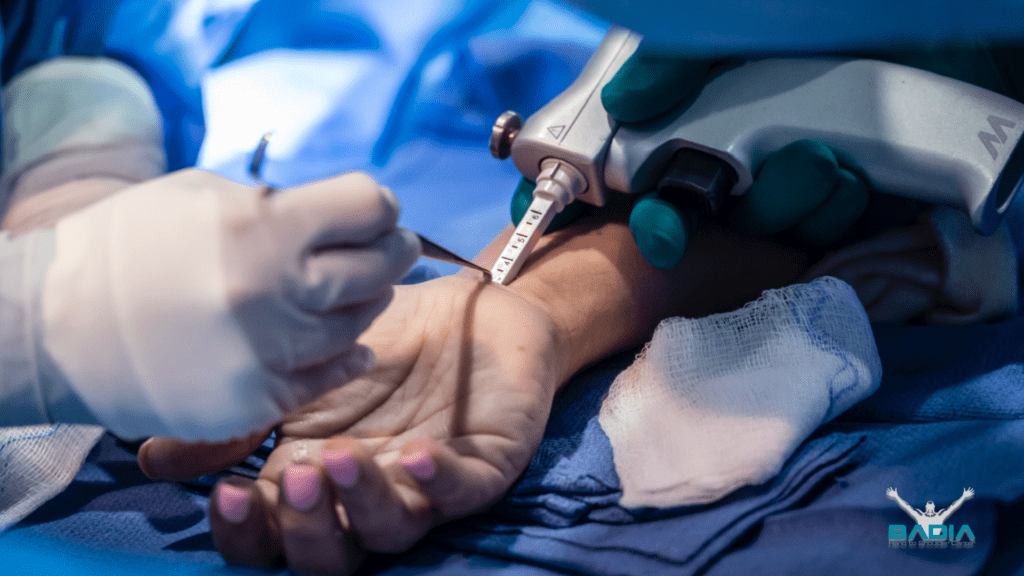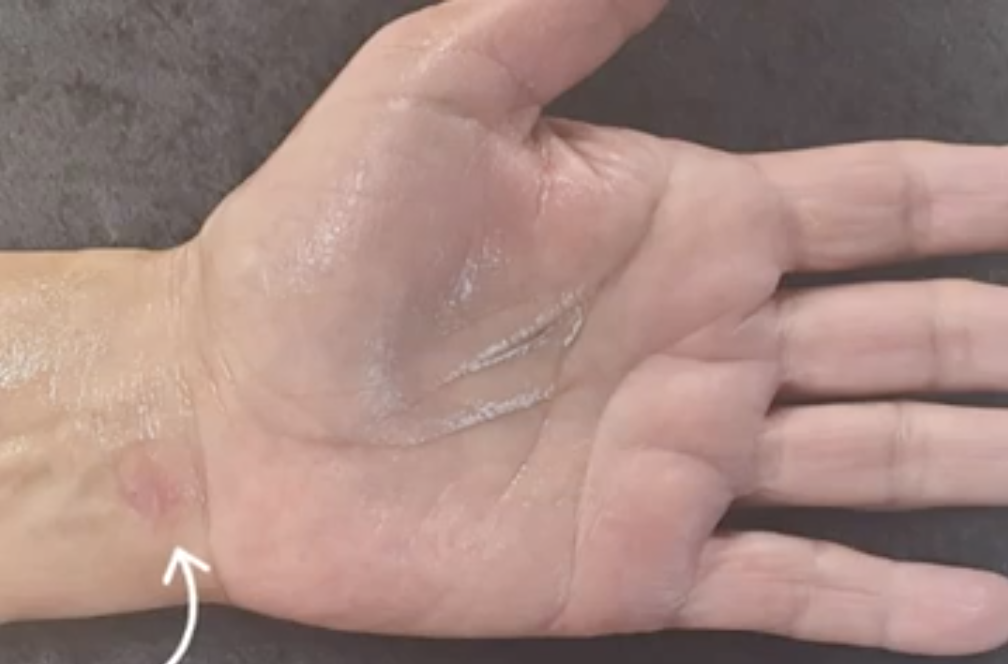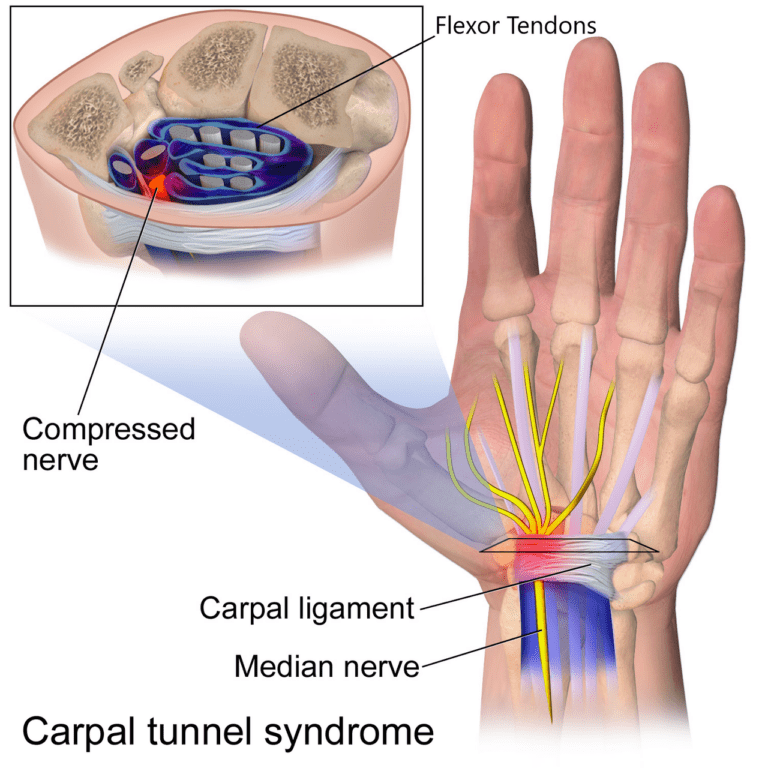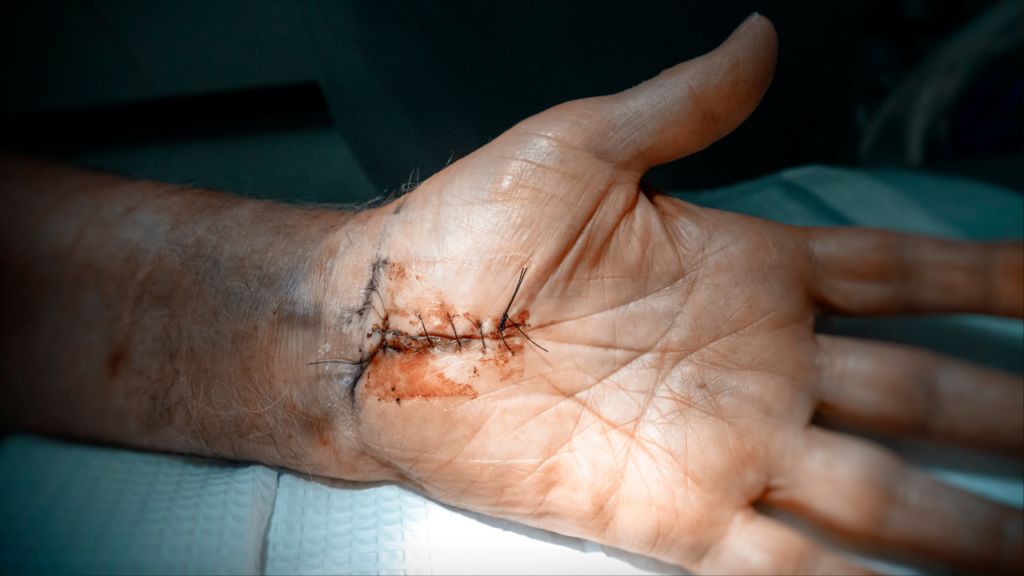Symptoms of Carpal Tunnel Syndrome?
According to the National Institutes of Health, carpal tunnel syndrome is one of the most common wrist conditions that exist with over 3 million cases reported yearly. The every day symptoms that are easily ignored include burning, tingling, or itching numbness in the palm of the hand (especially in the thumb and index), the feeling of swelling without it being apparent, or the feeling of pins and needles, hand clumsiness or hand and wrist weakness. Although many people suffer from this condition, most do not know that there is a minimally invasive procedure that can eliminate these symptoms.
What causes Carpal Tunnel Syndrome?
Carpal Tunnel syndrome affects the hand and wrist, is caused by excessive pressure on the median nerve, which then causes a numbness and tingling feeling in the thumb, index, middle and ring fingers. This can be due to fluid retention or swelling (during pregnancy or after trauma /injury), tendon irritation (excessive or repetitive hand use), nerve changes (diabetes, hypothyroidism, or alcoholism), inflammation from different types of arthritis, bone changes from arthritis, cysts or tumors. More severe cases may even experience different degrees of pain and discomfort as the muscle in the thumb becomes weak and decreases in size.
Endoscopic Carpal Tunnel Release

Dr. Alejandro Badia renowned Upper Extremity and Hand Surgeon, Medical Director of the Badia Hand to Shoulder Center and founder of OrthoNOW in Doral, Florida, specializes in minimally invasive procedures such as carpal tunnel release, which reduces pressure on the median nerve to alleviate the problem. The median nerve runs from the forearm to the hand along with flexor tendons through the carpal tunnel, which is composed of transverse carpal ligaments and carpal bones. It controls thumb movement and provides sensation from the palm side of the thumb to half of the ring finger
“Endoscopy is minimally invasive, meaning patients are able to start their recovery sooner. By leaving little to no scarring, it reduces the risk of infection, which allows the patient to return to their life quickly and with a minimal amount of discomfort,” said Dr. Badia.


Open Carpal Tunnel Release

Unlike open procedures, which are most common in the Caribbean, endoscopic procedures are much less painful, and the recovery and rehabilitation is a lot shorter. Patients from The Bahamas often travel to Miami for this reason. The procedure is done with local anesthesia and requires a three day stay. Patients who undergo the procedure are able to use their hand immediately.






